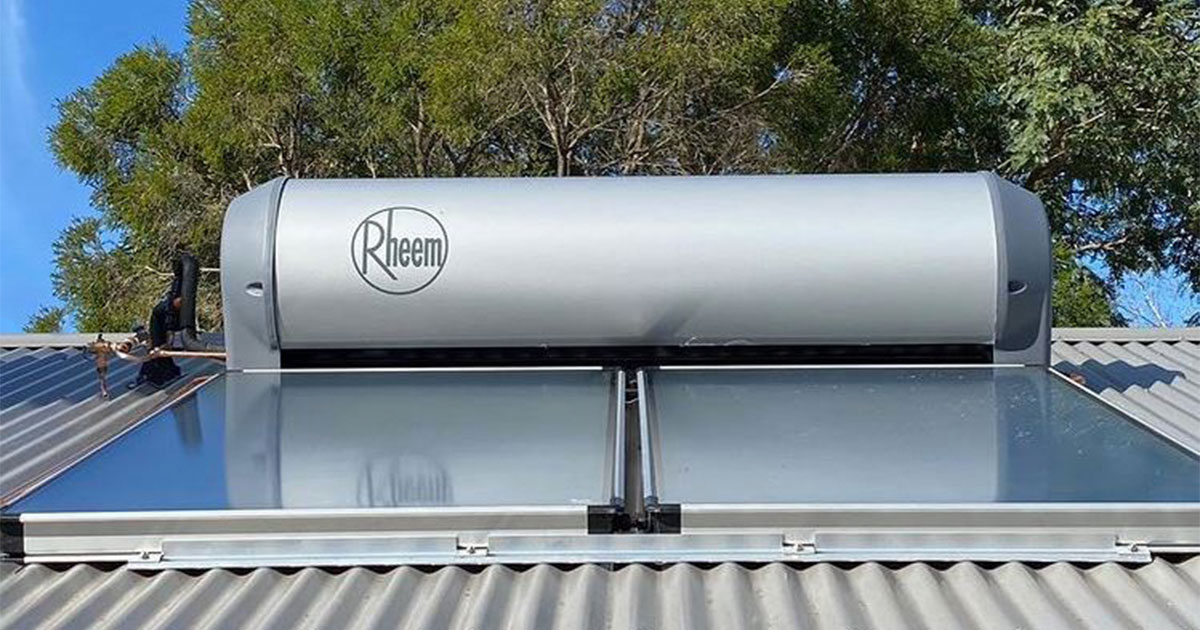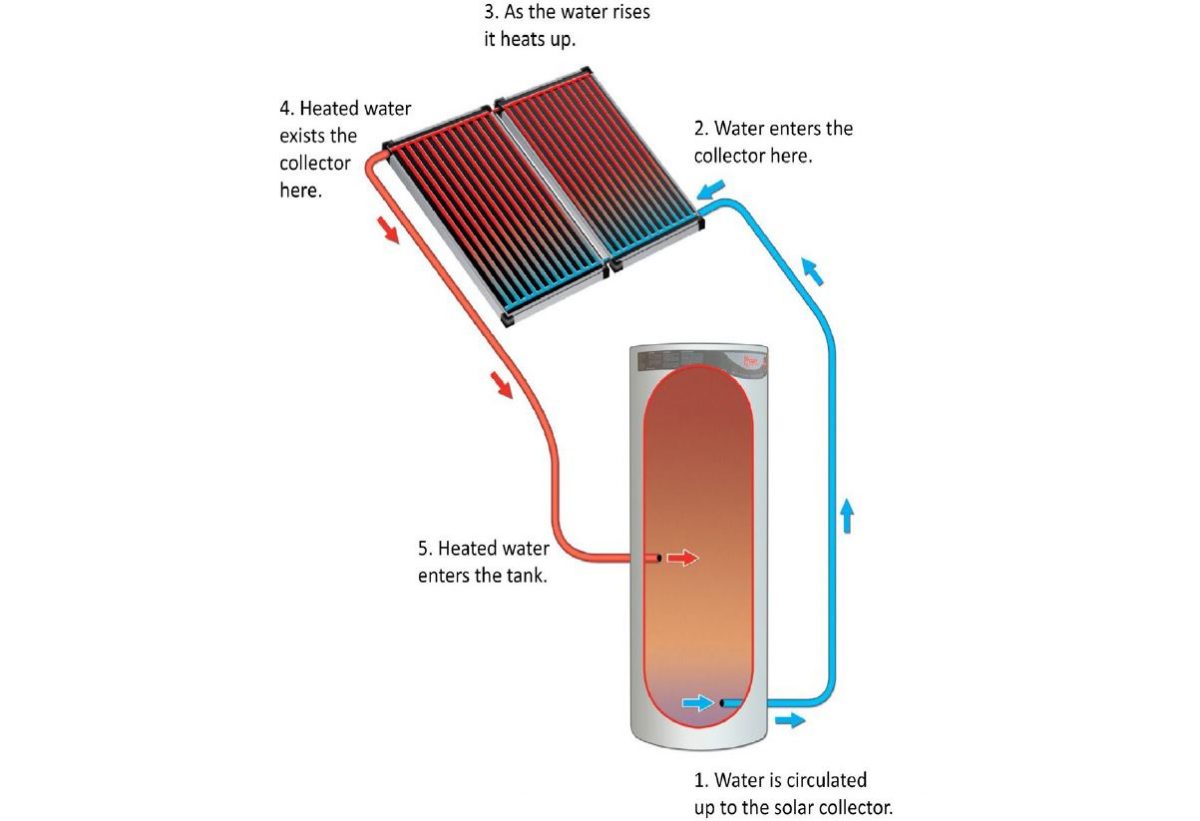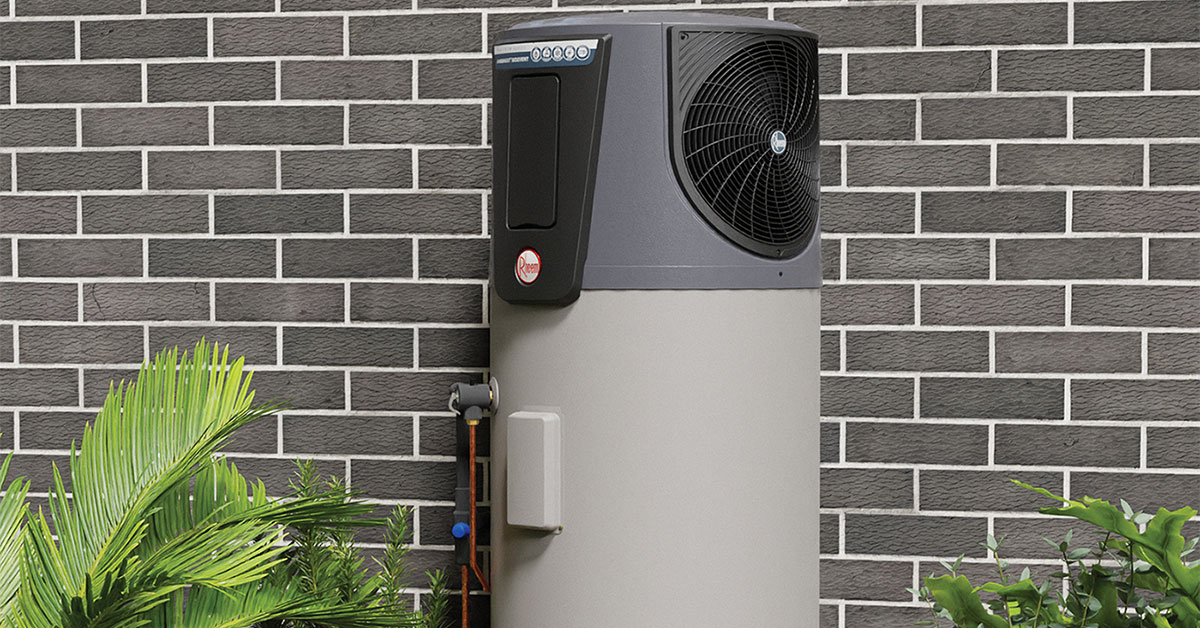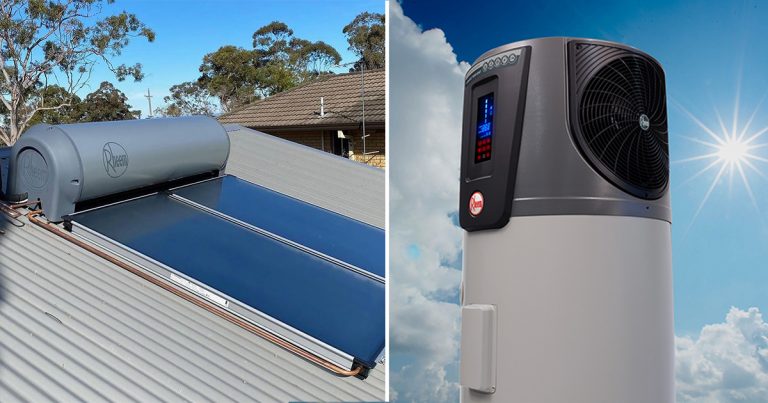It’s generally agreed that choosing renewable energy for your hot water needs reduces the amount of purchased energy to heat water. Given that hot water typically makes up 25-30% of a household’s energy consumption in Australia¹, switching to a renewable hot water solution can help you achieve greater energy savings.
Solar hot water and heat pump water heaters are both types of renewable hot water systems. They both work to not only deliver hot water but also energy savings for you and your family by relying on nature to heat water.
What is the difference between solar hot water and heat pump water heaters?
While both are renewable options, solar water heaters and heat pumps have some key differences. Solar hot water heaters use the sun’s direct and indirect solar radiation to heat water, whereas a heat pump uses the ambient heat in the surrounding air.
Solar hot water heaters come in either roof-mounted or ground-mounted configurations. In a roof-mounted system, the tank is on the roof, and it relies on a natural ‘thermosiphon’’ effect to heat and circulate water. There is no need for a mechanical pump as the water naturally rises from the collectors to the tank as it is heated by the sun.

In a ground-mounted system, the tank is on the ground, and it relies on a circulator to push the water through the system.

A heat pump is like an air conditioner on reverse cycle. It doesn’t rely on direct sunlight to operate as it uses the heat from the surrounding air to heat your water. They work all-year round, day and night, sunshine or rain, and even on cooler days, as there is always heat in the atmosphere that can be used.
For very cold conditions, heat pumps have a back-up element, delivering hot water for the coldest winter nights with active de-icing function.
ALSO READ: How solar hot water systems work to deliver hot water even on cloudy or rainy days
Solar Hot Water vs Heat Pump: What are the benefits of each?
Solar Hot Water:
Installing solar hot water is one of the simplest ways to reduce your carbon footprint. Going solar reduces your reliance on fossil fuels, helping you save up to 65% on your water heating energy consumption in the process².
Also, the installation of a solar hot water heater is eligible for Small-scale Technology Certificates (STCs), which helps reduce the up-front cost of going solar. STCs provide a financial incentive to encourage the installation of solar water heaters provided under a Federal Government legislated scheme.³
In addition, switching to solar can help you save up to 1.0 to 2.5 tonnes of greenhouse gas emissions per annum².
Need hot water fast but keen to go solar in the future? The Rheem Solar Ready Electric Water Heater may be the solution. Contact Rheem today to find out more.
Heat Pump:
A heat pump is the perfect solution if you’re after a fast and easy renewable option if your home may not be suitable for solar. Factors such as too much shade around your home may reduce the amount of solar energy available to heat the water in a solar water heater, which is not an issue for heat pumps as they use the surrounding air to heat water.
If you currently have an electric water heater, a heat pump is a great option to switch to renewable energy.
- It often uses similar electrical connection and plumbing connections, so replacement is quick and easy;
- It works all-year round, day and night as it does not rely on direct solar radiation for heating; and
- It could save you up to 73% on your water heating energy consumption⁴
Plus, like solar, heat pumps are also eligible for STCs, helping you reduce the up-front cost of switching to renewable energy.
Backed by years of research & development, the Rheem AMBIHEAT® Heat Pump is a smart, energy-efficient and cost-effective system. Find out more here.

Both solar and heat pumps use renewable energy, clean ways to produce hot water for your home.
To find out more about whether solar hot water or heat pump is right for you, contact Rheem, a solar specialist or your local plumber today.
Disclaimers:
1 – https://www.ga.gov.au/scientific-topics/energy/resources/other-renewable-energy-resources/solar-energy
2 – Energy and Greenhouse gas emissions savings based on Australian Government Approved TRNSYS simulation modelling of a Rheem Loline Solar Hot Water heater with 2xNPT200 collectors, a Rheem Hiline with 2xNPT200 collectors and a Rheem Premier Hiline with 2xSPA2000 collectors and using a medium load in Zone 3, and apply when replacing an electric water heater.
Any savings will vary depending upon type of Rheem Solar system installed, location of the installation, orientation and inclination of the solar collectors, type of water heater being replaced, hot water consumption and fuel tariff. Maximum financial savings off your hot water bill are achievable when replacing an electric water heater on continuous tariff.
3 – Eligibility criteria apply. Visit www.rheem.com.au/ rebates for information on Government Incentives (STC’s).
4 – Energy savings are based on Australian Government approved TRNSYS simulation modelling using a medium load in Zone 3 and apply when replacing a similar sized storage electric water heater. Any savings will vary depending upon your location, type of water heater being replaced, hot water consumption and fuel tariff. Any savings will vary depending upon your location, type of water heater being replaced, hot water consumption and fuel tariff.
Any savings will vary depending upon your location, type of water heater being replaced, hot water consumption and fuel tariff. The impact on an electricity account will depend on the tariff arrangement of the water heater being replaced and where you live.” The Rheem 551270 Heat Pump water heater (model / climate dependent) is recommended to be connected to either 24 hour continuous tariff or extended off-peak (min 16 hours/day). If replacing an electric water heater greater than 250 litres, heat pump connection to 24 hour continuous tariff is recommended. Before purchase consult your energy provider for more information on cost comparisons.




Comments are closed.